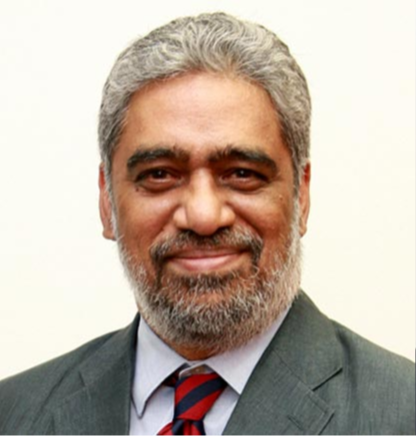-
CENTRES
Progammes & Centres
Location
 PDF Download
PDF Download 
More than two decades have passed since India first embarked on the path of liberalisation and renewed engagement with the international order. Yet the gains that seemed certain, once India began to emerge out of its previous identity of being a largely poor country with little political weight in the global arena, seem to be more distant today.
This is a source of despondency for the people of the country. The liberalisation process and the high growth that the country experienced between 2002 and 2011 had raised optimism and expectations of the people across the country. The poor and marginalised hoped for a better tomorrow and the lower middle class anticipated upward mobility through the growth of educational and job opportunities. But in the last few years, these expectations have been dashed with the country’s leadership having lost control at the steering wheel. As the economy tottered, other policy areas too suffered from lack of direction. Indian responses to issues, ranging from Chinese assertiveness in the Himalayan borders to the need to step up its role in Central and Southeast Asia, appeared feeble and even non-existent.
Over the last few years, there has been lack of progress in making social accountability systems stronger, a failure to implement effective and efficient public service delivery, and almost non-existent effort in
enabling long-term capital formation in crucial sectors of the economy. This poor show has pushed India’s growth and development processes along a downward trajectory. The Indian economy grew at a mere 4.5 percent (approx.) in 2012-13 and 2013-14, against the much higher growth rates of 8.4 percent and 6.6 percent in 2010-11 and 2011-12, respectively. The unsatisfactory state of the Indian economy, as a result of severe governance gaps and poor decision-making, calls for urgent interventions.
The immediate challenge is to break this downward spiral: of high inflation, low productivity, low investment and low level of job creation that the economy has faced over the last five years. Simultaneously, the new government needs to increase confidence among external actors about India’s capability and commitment to effectively manage its economy.
Besides the problems on the economic front, India is also confronted with a host of challenges in the international and security realms, which the leadership of the country in the recent past failed to deal with adequately. The lack of an appropriate response has derailed and delayed India’s rise on the world stage, strained its relations with its partners, and exacerbated bilateral tensions with some of its neighbours.
In light of such challenges, it is not surprising that the new government has chosen to cast its actionable agenda around a single, central theme: good governance. This is aligned with the commitment of the BJP to unleash the potential of the private sector, with the government focussing on the core sovereign tasks of fiscal management; promoting and facilitating infrastructure development; provision of basic public services; maintenance of internal security; promotion of India’s interests overseas and security against armed external aggression.
It is important to note that government structures are difficult to change across the board in the near term. Incremental, targeted reforms, aligned to the windows of opportunity as they become available, embody a more flexible and less disruptive approach to result-oriented change. Towards this end, the Observer Research Foundation offers policy prescriptions for the new Indian government to pursue in the economic, energy, social sector, defence and foreign policy spheres.
The views expressed above belong to the author(s). ORF research and analyses now available on Telegram! Click here to access our curated content — blogs, longforms and interviews.

Prof. C. Raja Mohan is Director Institute of South Asian Studies National University of Singapore. He is the contributing editor on international affairs for the ...
Read More +
Manoj Joshi is a Distinguished Fellow at the ORF. He has been a journalist specialising on national and international politics and is a commentator and ...
Read More +
Samir Saran is the President of the Observer Research Foundation (ORF), India’s premier think tank, headquartered in New Delhi with affiliates in North America and ...
Read More +